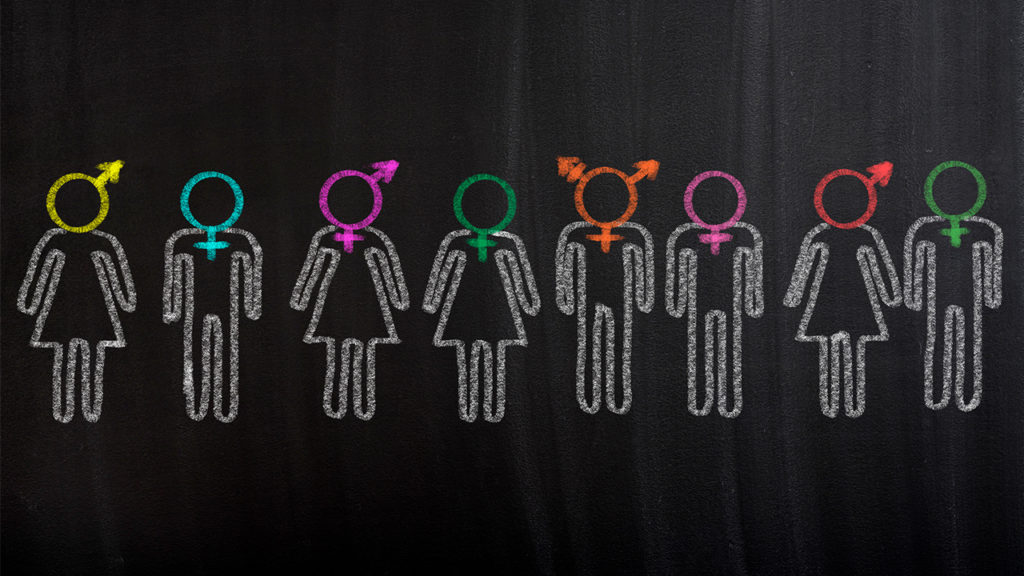Consumers’ feelings are mixed about brands making social and political statements, but there is evidence that younger generations like millennials and Gen Z, will tend to buy from brands who apply socially-conscious marketing.
This past week Gillette released a new ad campaign and it created a significant conversation via social media and mainstream outlets. The spot titled “We Believe,” tackles the idea of toxic masculinity and referenced the #metoo movement. Despite the commercial’s message against reinforcing traditional negative male behavior, it was met with some backlash. Some people started throwing out Gillette razors—posting videos on social media—and other warned they would boycott the brand. But, Business Insider reported a recent survey that hows the spot made a positive impact on 61 percent of 2,201 adults who were surveyed.
However, Gillette wasn’t the first brand to create marketing that pushes back against the idea of gender norms and stereotypes. Here are a few recent past examples.
Burger King’s ‘Proud Whopper’ Backs LGBT Community
In 2014, Burger King launched ‘Be Your Way’ campaign during San Francisco’s Pride Parade to support LGBT rights. The commercial, titled “Proud Whopper,” begins with a man on the street interviews asking about the proud whopper. One person—face blurred out—griped “Do gay people even eat fast food? Really?” Others praised the idea.
The thrust of the campaign was that the proud whopper was no different than any regular whopper, it just had a different wrapping. An allegory for differences between people.
Fernando Machado, now Burger King’s CMO, was the senior vice president of global branding at the time. In a 2014 interview, he told TIME, “We felt that [the Proud Whopper] could bring to life a message of equality, self-expression, authenticity and just being who you are.”
Machado continued, “As with anything in life, there will be people who will like it, there will people who will dislike it. We just hope that people will understand that the message is a beautiful one.”
According to a case study, the spot generated 7 million views, 1 billion impressions and $21 million in earned media.
In 2014 Arkansas and Oklahoma judges ruled its ban on gay marriage was unconstitutional. But in 2015, the Supreme Court ruled gay marriage legal for all 50 states.
Always’ #LikeAGirl Video Praises The Strength In Women
Always’ #LikeAGirl spot premiered in June 2014 and was viewed as a huge shift in for feminine care product messaging. In the ad, Always chose to begin a conversation of what it means to be a woman, rather than focus on the product. The three-minute video simulated a casting call and starts with a female director asking the actress, “Show me what it looks like to run like a girl?” the woman’s immediate response was to skip lightly, almost like she can’t run. The same question was asked to young girls and they had a different response; they ran with diligence.
The commercial has over 66 million view on YouTube and 42,000 comments. Another YouTube user wrote, “I fight like a girl because I am one. But I’m also a top student in taekwondo; gender doesn’t define you. You define you.”
Always continued the campaign and debuted a 60-second spot during the 2015 Super Bowl. The Huffington Post claimed it “stole the show.” Always made a series of more #LikeAGirl videos and they continue to repost them on their Twitter feed.
According to a case study by D&AD, “prior to watching the film, just 19 percent of 16-24s had a positive association toward ‘like a girl’. After watching, however, 76 percent said they no longer saw the phrase negatively. Furthermore, two out of three men who watched it said they’d now think twice before using the ‘like a girl’ as an insult.”
https://youtu.be/XjJQBjWYDTs
Dollar Shave Club’s ‘Get Ready’ Ad Is The Epitome Of Honest
Last year, Dollar Shave Club shifted brand messaging with the ‘Get Ready’ campaign. The honest, yet funny commercial shows an intersectional group of people and includes LGBT people. It highlights how we all struggle with our morning routine, including shaving, no matter who we are. In the ad, one balding man tries to fix the little hair he has, a dad reads on the toilet to take a break from the kids and one woman stares into her mirror as she shaves her head.
Michael Dubin, founder and CEO of Dollar Shave Club, told Adweek, “When you are getting ready in the morning, this is a moment when you see yourself at your most vulnerable. This is a time when you have to deal with your insecurities and your trouble zones. It’s also a time where guys come up with creative and unique solutions in their own personal care or grooming regimens.”
The company, based in California, was founded in 2011 as a disruptor brand for the razor and grooming industry. Dollar Shave Club was acquired by Unilever in 2016 for $1 billion.
Dollar Shave Club also supports original branded content an independent publication called Mel Magazine; its coverage challenges gender stereotypes and norms. In 2016, a trans person wrote an article “How To Be A Guy,” a raw analysis of the male experience and learning masculinity as an adult. Another, more recent article is titled “What It’s Like To Come Out As A Guy Who’s Going Through A Divorce.”
In an interview with Fast Company, Dubin explains the magazine isn’t for done for monetary reasons, but to actually connect to customers. “We are hoping to make a meaningful contribution to the evolution of men.”
https://youtu.be/QEU-MAZRhJs

